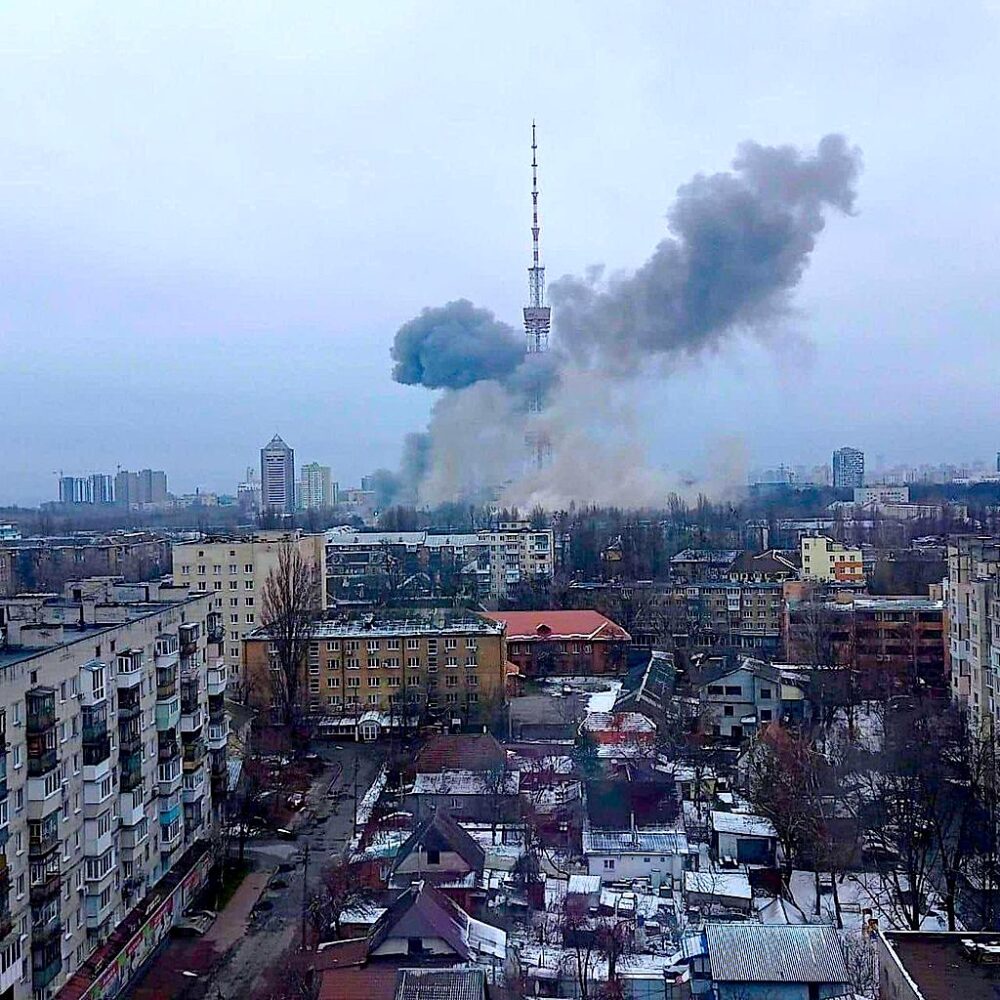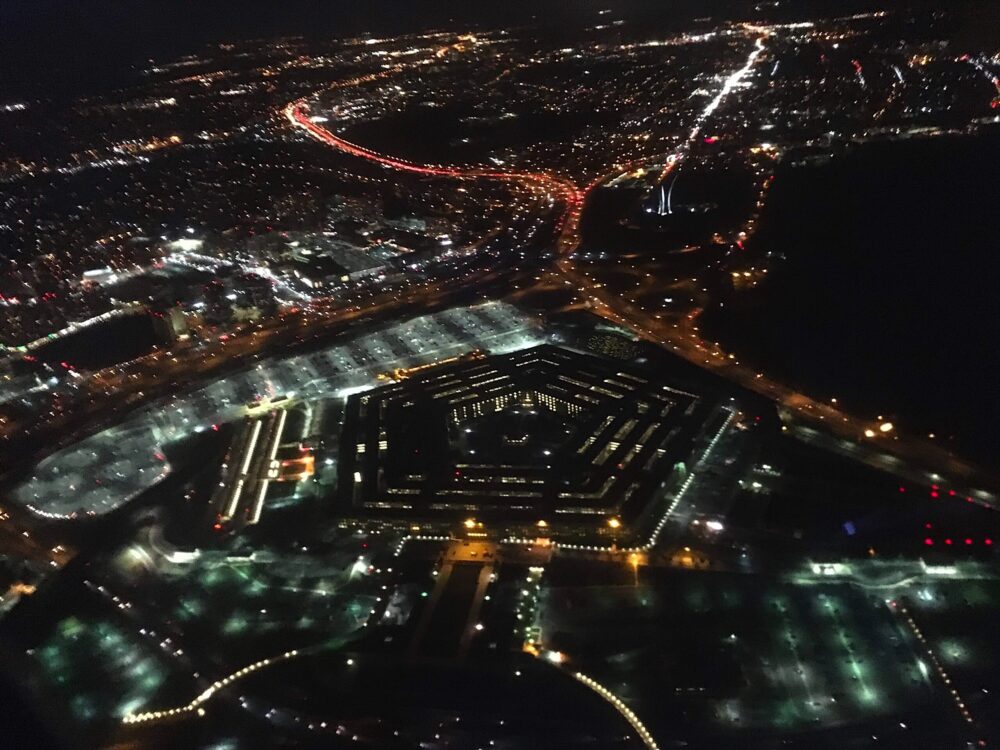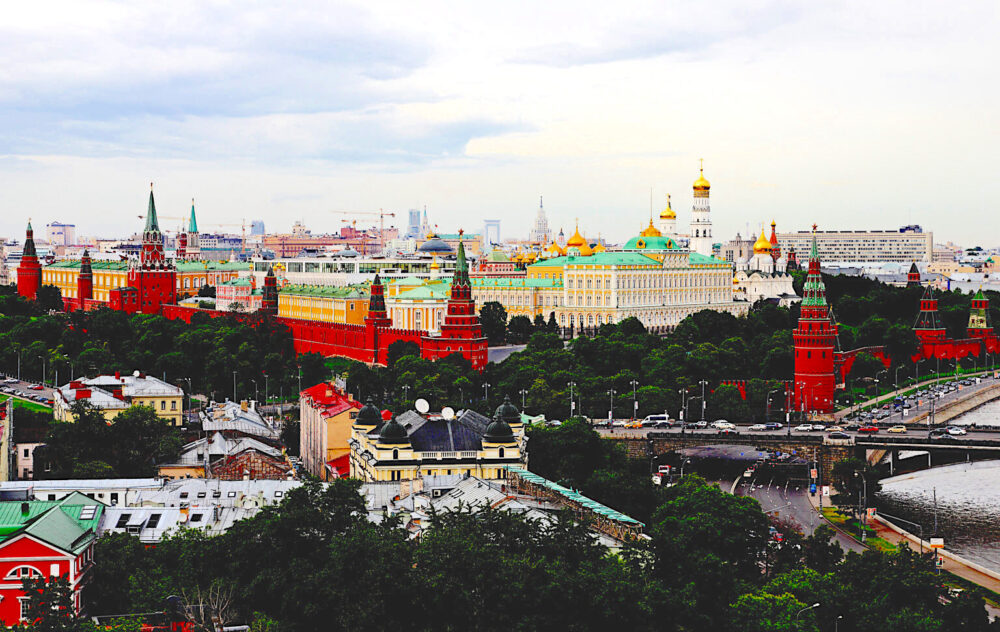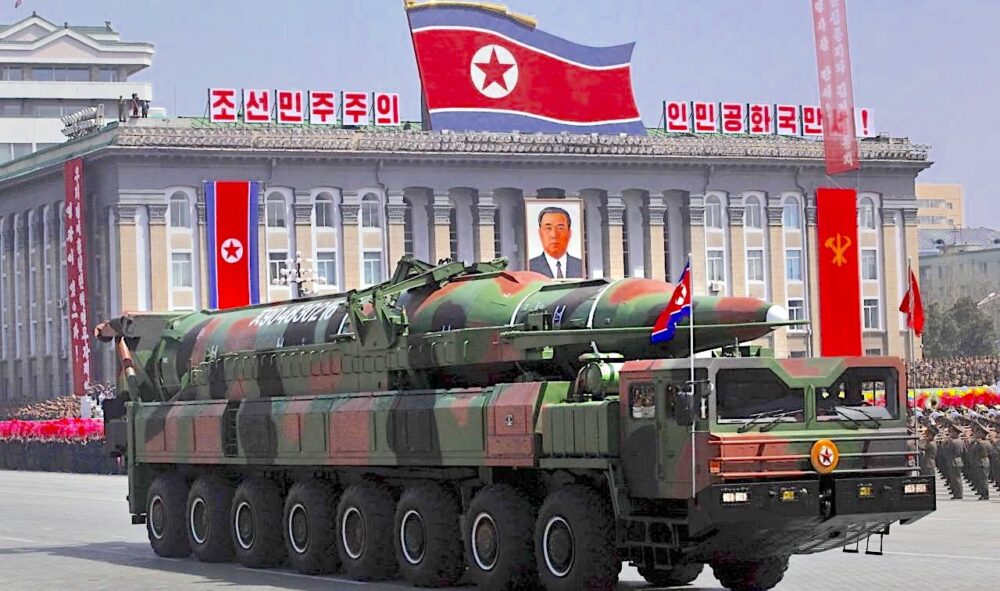More war and nothing else, the argument goes, will bring peace, writes Karen Greenberg.
By Karen J. Greenberg
TomDispatch.com

“It is time,” President Biden announced in April 2021, “to end the forever war” that started with the invasion of Afghanistan soon after the tragic terror attacks on this country on September 11, 2001. Indeed, that August, amid chaos and disaster, the president did finally pull the last remaining U.S. forces out of that country.
A year and a half later, it’s worth reflecting on where the United States stands when it comes to both that forever war against terrorism and war generally.
As it happens, the war on terror is anything but ended, even if it’s been overshadowed by the war in Ukraine and simmering conflicts around the globe, all too often involving the United States. In fact, it now seems as if this country is moving at breakneck speed out of the era of Forever War and into what might be thought of as the era of Eternal War.
Granted, it’s hard even to keep track of the potential powder kegs that seem all too ready to explode across the globe and are likely to involve the U.S. military in some fashion. Still, at this moment, perhaps it’s worth running through the most likely spots for future conflict.
Russia and China
In Ukraine, as each week passes, the United States only seems to ramp up its commitment to war with Russia, moving the slim line of proxy warfare ever closer to a head-to-head confrontation between the planet’s two great military powers.
Although the plan to avoid a direct confrontation with Russia clearly remains in effect, once taboo forms of support for Ukraine have over time become more acceptable.
As of early March, the United States, one of more than 50 countries offering some form of support, had allocated aid to Ukraine on 33 separate occasions, amounting to more than $113 billion worth of humanitarian, military, and financial assistance.
In the process, the Biden administration has agreed to provide increasingly lethal weaponry, including Bradley fighting vehicles, Patriot missile batteries, and Abrams tanks, while pressure for even more powerful weaponry like Army Tactical Missile Systems (ATACMs) and F-16s is only growing. As a recent Council on Foreign Relations report noted, Washington’s aid to Ukraine “far exceeds” that of any other country.
In recent weeks, the theater of tension with Russia has expanded beyond Ukraine, notably to the Arctic, where some experts see potential for direct conflict between Russia and the U.S., branding that region a “future flashpoint.”
Meanwhile, Russian President Vladimir Putin recently said tactical nuclear weapons would be deployed in neighboring Belarus, perhaps more of a taunt than a meaningful gesture, but nonetheless another point of tension between the two countries.
Leaving Ukraine aside, China’s presence looms large when it comes to predictions of future war with Washington. On more than one occasion, Biden has stated publicly that the United States would intervene if China were to launch an invasion of the island of Taiwan. Tellingly, efforts to fortify the U.S. military presence in the Asia-Pacific region have ratcheted up in recent months.
In February, for example, Washington unveiled plans to strengthen its military presence in the Philippines by occupying bases in the part of that country nearest to Taiwan.
All too ominously, four-star Air Force General Mike Minihan went so far as to suggest that this country might soon be at war with China. “I hope I am wrong. My gut tells me [we] will fight in 2025,” he wrote in a memo to the officers he commands in anticipation of a future Chinese move on Taiwan.
He also outlined a series of aggressive tactics and weapons training maneuvers in preparation for that day. And the Marines have been outfitting three regiments for a possible future island campaign in the Pacific, while war-gaming such battles in Southern California.
North Korea, Iran, and the War on Terror
North Korea and Iran are also perceived in Washington as simmering threats.
For months now, North Korea and the U.S. have been playing a game of nuclear chicken in parallel shows of missile strength and submarine maneuvers, including the North’s mid-March launch of an intercontinental ballistic missile capable of carrying a nuclear warhead and, at least theoretically, reaching the U.S. mainland.
In its leader Kim Jong-un’s words, it was intended to “strike fear into the enemies” of his country. In the last days of March, his military even launched a reputed underwater nuclear-capable drone, taking the confrontation one step further.
Meanwhile, Washington has been intensifying its security commitments to South Korea and Japan, flexing its muscles in the region, and upping the ante with the biggest joint military drills involving the South Korean armed forces in years.
As for Iran, it’s increasingly cooperating with an embattled Russia when it comes both to sending drones there and receiving cyberweapons from that country.
And since Donald Trump pulled the United States out of the JCPOA nuclear treaty with Iran in May 2018, tensions between Washington and Teheran have only intensified. International monitors have recently concluded that Iran may indeed be approaching the brink of being able to produce nuclear-grade enriched uranium.
At the same time, Israel has been ramping up its threats to attack Iran and draw the United States into such a crisis.
Meanwhile, smaller conflicts are sizzling around the globe, many seemingly tempting Washington to engage more actively. On President Biden’s agenda in his recent meeting with Canadian Prime Minister Justin Trudeau, for instance, was the possibility of deploying a Canadian-led multinational force to Haiti to help quell the devastating gang violence ravaging that country.
“We believe that the situation on the ground will not improve without armed security assistance from international partners,” a National Security Council official told NPR’s Morning Edition ahead of the summit. Trudeau, however, backed away from accepting such a role.
What Washington will now do — fearing a wave of new immigrants — remains to be seen.
And don’t forget that the forever war on terror persists, even if in a somewhat different and more muted form. Although the U.S. has left Afghanistan, for instance, it still retains the right to conduct “over the horizon” air strikes there.
And to this day, it continues to launch targeted strikes against the al-Shabaab terror group in Somalia, even if in far lower numbers than during the Trump years when drone strikes reached an all-time high of more than 200. So far, the Biden administration has launched 29 such strikes in the last two years.
American drone attacks persist in Syria as well. Only recently, in retaliation for a drone attack against U.S. troops there that killed an American contractor and wounded another, as well as five soldiers, the Biden administration carried out strikes against Iranian-backed militias.
According to National Security Council spokesperson John Kirby, President Biden has still not ruled out further retaliatory acts there. As he told Margaret Brennan on Face the Nation at the end of March, referring to ISIS in Syria, “We have under 1,000 troops [there] that are going after that network, which is, while greatly diminished, still viable, and still critical. So we’re going to stay at that task.”
Other than Syria and Iraq (where the U.S. still has 2,500 troops), the war on terror is now particularly focused on Africa. In the Sahel region, the swath of that continent just below the Sahara Desert, including Chad, Niger, Nigeria, Mauritania, and Sudan, among other countries, the legacies of past terrorism and the war in Ukraine have reportedly converged, creating devastatingly unstable and violent conditions, exacerbating what USAID official Robert Jenkins has called “decades of undelivered promises.”
As journalist Walter Pincus put it recently, “With little public notice, the two-decades-long U.S. war on terrorism continues in the Sahel.” According to the 2023 Global Index for Terrorism, that region is now the “epicenter of terrorism.”
The largest U.S. presence in West Africa is in Niger, which, as Nick Turse reports, “hosts the largest and most expensive drone bases run by the U.S. military,” intended primarily to counter terrorist groups like Boko Haram, al-Qaeda, and the Islamic State.
Weapons from the war in Ukraine have found their way to such terrorist groups, while climate-change induced weather nightmares, deepening food insecurity, and ever more dislocated populations have led to an increasingly unstable situation in the region.
Complicating things further, the Wagner group, the Russian mercenary paramilitary outfit, has been offering security assistance to countries in the Sahel, intensifying the potential for violence. U.S. military forces and bases in the region have grown apace as the war on terror in Africa intensifies.
Legislative Support for Eternal Warfare

U.S. House of Representatives building and the East Portico of the U.S. Capitol. (Ron Cogswell, Flickr, CC BY 2.0)
Legislative moves in Congress unabashedly reflect this country’s pivot to Eternal War. Admittedly, the push for an ever-expanding battlefield didn’t start with the great-power conflicts leading today’s headlines.
The 2001 congressional Authorization for the Use of Military Force (AUMF), which paved the way for the invasion of Afghanistan, gave the president essentially unlimited authority to take offensive action in the name of countering terrorism by not naming an enemy or providing any geographical or time limits.
Since the fall of 2001, just as Representative Barbara Lee (D-CA) predicted while casting the only vote against it, that AUMF has served as a presidential “blank check” when it comes to authorizing the use of force more or less anywhere.
Former State Department lawyer Brian Finucane has pointed out that the perpetuation of “much of the legal, institutional, and physical infrastructure that underpin this decades-long” war on terror is now being extended to the Sahel, no matter the predictable results.
As Soufan Group terrorism expert Colin Clarke told me, “A global war on terrorism has never been winnable. Terrorism is a tactic. It can’t be fully defeated, just mitigated and managed.”
Nevertheless, the 2001 AUMF remains on the books, available to be tapped in ever-expansive ways globally. Only this month, Congress once again voted against its repeal.
Admittedly, the Senate did recently repeal the 1991 and 2002 authorizations for the use of force that undergirded the Iraq War of 1991 and the 2002 invasion of that country. Notably, a new amendment proposed by Senator Lindsey Graham (R-SC) to also create an AUMF against Iran-backed militias in the region was defeated. As recent military engagements in Syria have shown, new authorizations have proven unnecessary.
Congress seems to be seconding the move from Forever War to Eternal War without significant opposition. In fact, when it comes to funding such a future, its members have been all too enthusiastic. As potential future war scenarios have expanded, so has the Pentagon budget which has grown astronomically over the past two years.
In December, President Biden signed the 2023 National Defense Authorization Act, which granted the Pentagon an unprecedented $816.7 billion, 8% more than the year before (with Congress upping the White House’s suggested funding by $45 billion).
And the requests for the 2024 budget are now in. As Pentagon expert William Hartung reports, at $886 billion dollars, $69 billion more than this year’s budget, Congress is on a path to enacting “the first $1 trillion package ever,” a development he labels “madness.”
“An open-ended strategy,” Hartung explains, “that seeks to develop capabilities to win a war with Russia or China, fight regional wars against Iran or North Korea, and sustain a global war on terror that includes operations in at least 85 countries is a recipe for endless conflict.”
Whatever Happened to the Idea of Peace?

Russian bombardment of telecommunications antennas in Kiev, March 1, 2022. (Ministry of Internal Affairs of Ukraine/Wikimedia Commons)
When it comes to the war in Ukraine, there is a widely shared sense that it’s going to last and last — and last some more. Certain experts see nothing short of years of fighting still on the horizon, especially since there seems to be little appetite for peace among American officials.
While French President Emmanuel Macron and German Chancellor Olaf Scholz have reportedly urged Ukrainian President Volodymyr Zelensky to consider peace talks, they seem to have few illusions about how long the war is likely to go on.
For his part, Zelensky has made it clear that, when it comes to Russia, “there is nothing to talk about and nobody to talk about over there.” According to Alexander Gabuev, a senior fellow at the Carnegie Endowment for International Peace, the mood in both Moscow and Kyiv could be summed up as “give war a chance.”
China is, it seems, an outlier when it comes to accepting a long-term war in Ukraine. Even prior to his visit to Russia in late March, President Xi Jinping offered to broker a ceasefire, while releasing a position paper on the perils of continued warfare and what a negotiated peace might aim to secure, including supply-chain stability, nuclear power plant safety, and the easing of war-caused global humanitarian crises. Reportedly, the summit between Xi and Putin made little headway on any of this.
Here in the U.S., calls for peace talks have been minimal. Admittedly, last November, Chairman of the Joint Chiefs of Staff Mark Milley reportedly told the Economic Club of New York, “When there’s an opportunity to negotiate, when peace can be achieved, seize it. Seize the moment.” But there has been no obvious drive for diplomatic negotiations of any sort in Washington.
In fact, Kirby, the National Security Council spokesperson, responded to President Xi’s proposal this way: “We don’t support calls for a ceasefire right now.” The Russians, he claimed, would take such an opportunity “to only further entrench their positions in Ukraine… [and] rebuild, refit, and refresh their forces so that they can restart attacks on Ukraine at a time of their choosing.”
Disturbingly, American calls for peace and diplomacy have tended to further embrace the ongoing war. The New York Times editorial board, while plugging future peace diplomacy, suggested that only continued warfare could get us to such a place: “[S]erious diplomacy has a chance only if Russia accepts that it cannot bring Ukraine to its knees. And for that to happen, the United States and its allies cannot waver in their support [of Ukraine].”
More war and nothing else, the argument goes, will bring peace. The pressure to provide ever more powerful weapons to Ukraine remains constant on both sides of the aisle. As Robert Wicker, the top Republican on the Senate Armed Services Committee put it, “[T]his approach of ‘more, better, faster’ would give the Ukrainians a real shot at victory.”
Whether in Ukraine, in the brewing tensions of what’s being called a “new cold war” in Asia, or in this country’s never-ending version of the war on terror, we now live in a world where war is ever more accepted as a permanent condition.
On the legal, legislative, and military fronts, it has become a mainstay for what passes as national security activity.
Some of this, as many critics contend, is driven by economic incentives like lining the pockets of the giant weapons-making corporations to the tune of multibillions of dollars annually; some by what passes for ideological fervor with democracy pitched against autocracy; some by the seemingly never-ending legacy of the war on terror.
Sadly enough, all of this prioritizes killing and destruction over life and true security. In none of it do our leaders seem to be able to imagine reaching any kind of peace without yet more weapons, more violence, more conflicts, and more death.
Who even remembers when the First World War was known as “the war to end all wars”? Sadly, it seems that the era of Eternal War is now upon us. We should at least acknowledge that reality.
Karen J. Greenberg, a TomDispatch regular, is the director of the Center on National Security at Fordham Law. Her most recent book is Subtle Tools: The Dismantling of American Democracy from the War on Terror to Donald Trump, now out in paperback. Kevin Ruane and Claudia Bennett contributed research for this article.




It is sad that after tasting “the war to end all wars” for over a century, humanity has only “progressed” to partake in what currently passes as “a peace to end all peace” at least for the forseeable near decades ! Trust at the global level in multilateralisms have largely eroded if not evaporated entirely and humanity would have to rework at it but only after stabilizing into a new equilibrium. Good luck, folks !
Our “allies”, suffer US, and our imposed “Stockholm syndrome”. We calmly destabilize, Our “allies” along with our assigned enemies.
This is wearing sham thin, our “allies” were first overrun by peoples we dislocated. Germany embargoed from Russian energy and resources , then blowing up their pipeline. All after instigating our this proxy war.
All the while our corporations of war weapons prosper. To what end. Or just an end.
China unites the majority of the world. Not against us but for the vacuum created by our fires of war and destruction. Our own destruction as we crumble and kill each other here at home.
Or is there any alternative to
Us running the world, look how we run Us. Kill kill kill, unconcealed, we are becoming.
It appears to me that most human DNA is predisposed to self-imposed ignorance, war, hate, avarice, lust, killing, violence, destruction and selfishness at best and self-annihilation at worst. The human race is doomed to extinction by our own hand…
On an individual, one-by-one basis that is not true. Humans have “instincts” to moral goodness and justice in equal measure to greed and prejudice; it is just that we do not have (yet) the intelligence or imagination to understand how to structure our societies for sustainability. When I say “sustainability” it is just as it sounds – the possibility that we might through some insightful breakthrough figure out how not to turn this cosmic paradise into a ball devoid of human life. It is a rather pathetic human conceit that we judge all of creation through the lens of human consciousness, but what other mode of understanding is available to us?
As observed by many others, our technological creativity and consequent physical proliferation far exceeds our social imagination and collective determination.
War does seem eternal, the pattern of history would suggest so. Yet all empires have eventually faced the conflict they were trying to avoid – their own downfall. They have always fought to gain power and retain it. But power is an illusion – can never be held forever. They are running short of time to realize it.
Consortium News’ founder Robert Parry wrote one of the earliest articles on the neocons’ interest in having a conflict in Ukraine.
What Neocons Want from Ukraine Crisis
hxxp://consortiumnews.com/2014/03/02/what-neocons-want-from-ukraine-crisis/
Today I’m seeing a consensus developing across the (non-establishment) political spectrum on our warmongers. When discussing the apparent / obvious irrationality / craziness of the West’s war policies (re the Middle East, Russia, China) the talk comes around to the neocons being the drivers.
For example, I’ve noticed this with The Duran analysts and many of their guests, Steve Bannon’s War Room, Mondoweiss articles, The Kim Iversen Show, Redacted News, Tucker Carlson, and various independent commentators including Col. Lawrence Wilkerson, Ray McGovern, Col. Douglas MacGregor.
Once again Consortium News proves itself to be a pioneer in its reporting and analysis.
No, the sick hegemonists, the genocidal murderers, enslavers, colonizers, plunderers, and the like hope that they can do their mischief forever.
Greatly mistaken they have been, the wretched.
The hour of the crucial battle is struck, and all such will be destroyed/ erased forever this time.
Too many here still do not get it.
Frederick Douglass told us: “Power concedes nothing without a struggle.” And he witnessed what to that point had been one of the bloodiest struggles of western man to that time. Later, MLK Jr. began to tell his fellow travelers that the US was the world’s largest purveyor of violence, but he also recognized the truth of Douglass’s words. Though MLK was non-violent, he was not non-confrontational. Nothing that was accomplished by the Freedom Movement came about BY SHAMING THE POWERFUL and WISHING THEY DEVELOPED SOME MORAL CONSCIENCE.
You can forget that shit – that is not the way human society works. Yes, individuals have the tendencies and the baked-in predilection for moral goodness and an innate sense of justice that should prevail, but collective society does not operate along the same precepts and restraints as individuals.
There isn’t anyone here more than myself that wishes that we US citizens could change the course of this plague ship, but I doubt very much that will be the case. Our leaders have declared their firm purpose to remain the sole arbiters of the future and of the order of human relations. So be it; such positions never stand the test of time.
So long as the government in Taiwan isn’t called by its official name – the Republic of China – Americans in particular will not know that their country is interfering in an unfinished Civil War (the People’s Republic of China on the mainland versus the Republic of China on Taiwan island).
That said, most people talk about a war with the PRC as if it’ll be a sure win for the US – very much like the narrative spun just before the Korean War.
In that war, North Korea had the advantage over the South until US intervention. China then warned – through Indian ambassador (KM Pannikar) – that while it would not interfere in a Korean civil war, it would be a different matter if US troops crossed the 38th parallel.
China’s warning was greeted with laughter in the West. “The Chinese can’t fight” and “they’re bluffing” were common assertions.
Such reactions were understandable. China was desperately impoverished and its peasant army (PLA) poorly armed. Could such an army defeat the best and strongest in the world?
They could: the US 8th Army was chased from the Yalu River back to the 38th parallel, a distance of 120 miles – “the longest retreat in American history”(S.L.A. Marshall).
Today’s China has much better arms. It won’t be easy for the neocons, even with an oversized military budget, to count their chickens before they’re hatched.
Thank you sir.
Much to be said concerning the power derived from area residents defending their homes from outside military aggression from a distance!
The U.S. public (and their European lapdogs) seem to have no limits to how many times they’re willing to be duped into misguided wars. You’d think after Iraq and Afghanistan people would stand up and say no more. But people seem unable to reflect on the past and see how they are being duped over and over in basically the same way.
It seems to be human nature to be that gullible – those who are not so gullible are freaks of nature.
So given this reality, it’s hard to know who to blame. To some extent, people who stand up over and over to be lied to, deserve what they get.
How can one have hope for change when people so adamantly do not want to know the truth.
It’s not a lack of information, it’s a lack of the desire to know.
Pretty depressing.
I must confess to being rather disappointed with this Karen Greenberg person. If I may add:
The Five Principles of peaceful coexistence, as stated in the Sino–Indian Agreement 1954 by Zhou En Lai, are:
mutual respect for each other’s territorial integrity and sovereignty,
mutual non-aggression,
mutual non-interference in each other’s internal affairs,
equality and co-operation for mutual benefit, and
peaceful co-existence
These principles are a strict interpretation of the Westphalian norms of state sovereignty. Every single one of Ms. Greenberg’s complaints began in a violation of one or more of these principles and continue as a result of the continued violation of the principles.
Great call Jeff. It is, what it is, nothing else.
The Deep State controls the U.S. government. Follow the money.
Once the MICCIMATT, et. al. who support the government complex it has become since it was contrived along with the birth of the national security state was created to guard the U.S. nuclear technology and other highly technical secrets of the military and certain industries the “fix was in”.
I’m not sure at all the Sino-Indian Agreement by Zhou En Lai in 1954 wasn’t a deliberate effort to present an ulterior opinion to the “New Age of American Empire”. 1954 would have been the time for this to happen.
As it turns out the Overton Window seems to function perfectly to give lawmakers and politicians an excuse to limit debate on issues and as an excuse to the pass the unpopular.
The result is the total acquiescence by the publicly elected representatives to the pressures exerted on democracy, especially in the case of dominate lobbyist structure in place in D.C.. The result is that about forty years later in the 1990’s all bet were of the fleecing of Americans was well underway.
The result seems to be more and more looking as if the U.S. is a morally bankrupt and fiscally bankrupt country. An accurate reflection of what the neocon mindset has successfully crafted from our nation.
Thanks CN
It’s sad that lives are not important when it comes to America’s wars. But what U.S leaders don’t understand is that even a single death is a sin before GOD Almighty and therefore whoever commits has to suffer the results in one way or the other.So,it Washington’s case,it’s their lose of commonsense. They no longer think rationally as any normal person could. That’s why they they behave as they do and all the problems engulfing the various communities in the United States. That said,there’s nothing U.S will do to reclaim their diminishing glory other than continue losing it further due lack of understanding/commonsense.But,why are ordinary American citizens not see what their country is doing? Is it because they’re ignorant of it all or they gave up due to many problems they’ve? Lastly,the eternal wars you mention here are nothing but kicks of a dying horse.Unless U.S understands and change course now before it’s too late,they’ll remain alone in this speedily changing world.
When, eventually, the US is stopped from waging war, the world might know peace again. We might realise how close we came to extinction by allowing one country to dominate.
I say the US ‘is stopped’ because it no longer seems to have any control over its behaviour, and shows no sign of stopping of its own accord. The few rational people in the US with any degree of influence are suppressed by the seemingly increasing number of warmongers, many of whom regard war as a game to be played in their power struggle. For them it is easy to push for war, believing that they are safe and untouchable in their delusions of exceptionalism.
War is even baked into the US economy, the huge industrial military complex (MIC) selling weapons to both sides of conflicts created by the US – perhaps just for that purpose.
But the cracks are becoming visible as the US military struggles to recruit soldiers. The entry standards are being lowered all the time, and they have resorted to offering ever increasing incentives. If the horrors of the endless / forever wars have percolated down into the lower ranks of social orders, from which the military prefers to recruit, then it means that Americans are waking up to their country’s aggression.
I hope that the US will be stopped from within, by its own people, people from outside the deep state, politicians and MIC organisations – by ordinary people – saying ‘enough!’.
I am impressed, unfavorably, how many Americans cannot imagine life without constant warfare, anymore than they can imagine eliminating homelessness.
Hmmm Presidents at war.
Oh wait, Bush and Biden—- both voted for wars, and that eternal war money ——- but apparently they decided not to start any wars until they were too old to be drafted.
sigh. I still think of Ben Franklin and how he too realized what wars can to to any nation.
“It’s a republic if we can keep it.”
Thanks Ben, but I wonder if any presidents, past and present ever read what you said…. probably not. BUT the people who make all those war products are certainly happy.
Biden is the devil just like Trump. The game is false.
Who exactly are the specific individuals advocating for more and more war? The Dr. Strangeloves running US foreign (& domestic) policy should be named and shamed out of public discourse. They have done everything possible in recent decades to make the rest of the world see us not as democracy spreaders, but as vicious predators intent on inflicting as much suffering and death as possible to gain economic dominance for craven corporate banksters, and oligarchs, especially MIC, who own and operate US gov for their own exclusive benefit, corrupting all institutions in their wake. IMO, these people are venal narcissistic vermin, sociopaths with no empathy, and an obvious death wish. If their actions bring on nuclear hell– as far as they’re concerned, so what, bring it on! People like that are the epitome of evil, and should not be tolerated by civilized society.
Richard, as much as I sympathize with your moralistic disdain for the war-mongers of humanity, there is no amount of shaming that is going to make them even the least bit uncomfortable. Power is nothing if not used and exercised, and they intend to continue along this path until someone blows their fucking brains out. That is the inevitable path that we are on; it is probably only a matter of time. It will not be the “US” against Russia, China, etc., but it will be the wealthy and powerful against the rest of humanity. It is the only way, and unfortunately the only result will be a reset of where we have been.
What was is that Einstein(?) said – “I don’t know what weapons will be used in the next war, but the one after that will be fought with sticks and stones.”
America is amazingly arrogant.
First, America says only it gets to say when America is at war. America claims that it can hit Russia from many angles, but still be ‘at peace’. The arrogance in this is the stance that says that only America gets to decide when it is at war. Try that during a bar fight sometime …. claim that you can participate in the fight, but can not be hit because you aren’t throwing punches with a closed fist, which is how you have loudly defined ‘fighting’ and thus tell the others in the bar fight that you are not actually fighting. My guess is that you’ll get a black eye, if you are lucky to get off that lightly.
Then, America’s arrogance extends into believing that a war will be an Endless War because America says so. This is the arrogance of the bully who believes that it is impossible to lose a fight. The fight will last as long as I want it to. And yet, other nations might have say in this. The ability to fight an Endless War is claiming an ability to always stay undefeated. History says this is a big claim that is rarely matched.
Or, is this a sign that a small bit of doubt is creeping into America’s elite arrogance? A few years back, the theories would have talked about the inevitable victory over sub-humans like the Russians and Chinese. Now they have shifted down a bit from claims of certain victory by the exceptional people, into merely claims that they can keep the war going for as long as they want while making their obscene profits from it.
They do this in EVERY field: they threw out Chinese stock market listings because….oooh shady. Then they have Credit Suisse DNC star banker Klein, doing all manner of SPAC transactions that are heavily soiled if you ask “muddywaters” research. That’s ok. Full NYSE listing status! Then they poo poo foreign tech, as if Qualcom’s leaky modems and google spyware and NSO are holy.